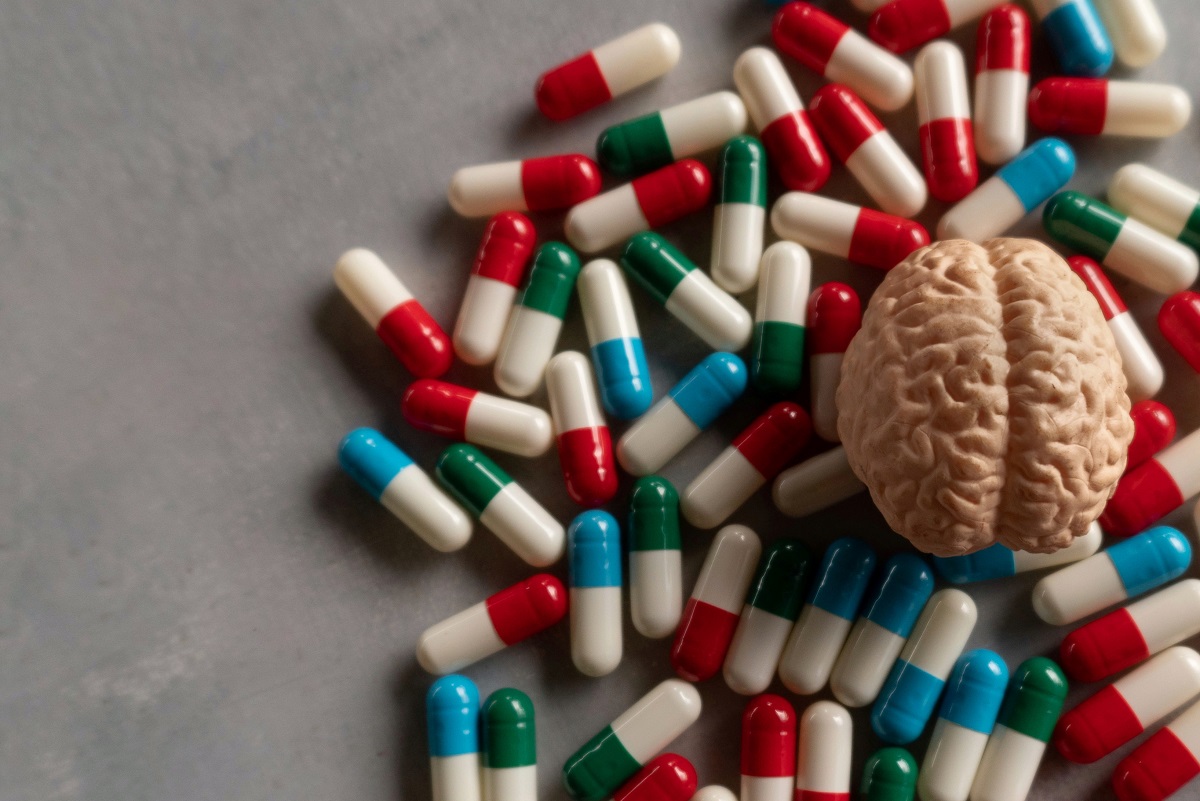This is a serious mental health problem that impacts thinking, feeling, and behavior. The most common symptoms in people with schizophrenia include delusions, hallucinations, and thinking and behavior changes. Hallucinations occur when someone sees things or hears voices that cannot observed by other people. Delusions happen when a person believes things that are not true. Therefore, this condition causes people to lose touch with reality which makes daily living quite hard.
Commonly those who were diagnosed with schizophrenia require life-long treatment. These include medications, talk therapies, and others.
Unfortunately, many people with this mental condition do not understand they have this one and think they do not need treatment. However, early diagnosis and treatment can help to reduce the symptoms and improve the quality of life.
Symptoms
- Delusions
- Hallucinations
- Disorganized thinking and speech
- Unusual motor behavior
- Negative symptoms (for instance, they may not breath, make eye contact, or show emotions)
Usually, the symptoms depend on the severity of the condition. Over time, symptoms may get better or worse while some people may experience the symptoms all time.
Commonly, people are diagnosed with this condition in their late teen years or early 30s. While men with schizophrenia may notice symptoms in their late teens, women begin to experience the symptoms in their late 20s or early 30s. Additionally, this mental disorder is not common for children to be diagnosed with.
Symptoms in Teenagers
Usually, symptoms are similar to those in adults. Check below other common symptoms that occur in teenagers:
- Withdrawing from family and friends
- Feeling irritable or depressed
- Lack of motivation
- Sleeping problems
- Not doing well at school
Furthermore, using recreational drugs such as marijuana (cannabis), stimulants (such as cocaine, and methamphetamine), or hallucinogens also can provoke similar symptoms.
How to Help Someone Who May Have Schizophrenia?
In case you know a person who has schizophrenia symptoms, you can talk to them about your worries. Those with this condition usually think they do not need treatment and the only you can offer them is encouragement and support.
Moreover, it is advised to call 911 in the United States if people are in danger to themselves or others, and do not have food, clothing, or shelter. Thereafter, healthcare professionals will evaluate them.
Sometimes, people need an emergency stay in the hospital. Discuss with mental health agencies or police departments because laws on mental health treatment against people can be different among states.
Suicidal Behavior and Thoughts
Those who were diagnosed with this mental condition are at higher risk of developing suicidal thoughts or attempts. If you notice that someone is in danger of suicide or make an attempt, it is advised to call the suicide hotline and make sure a person stays with him/her. With treatment, suicidal risk can be reduced. Talk with a doctor for more details.
Causes
However, the exact cause of this mental condition is not known. Researchers think a combination of genetics, brain chemistry, and environment can provoke this condition.
Moreover, certain changes that happen naturally in the brain chemicals known as neurotransmitters (including Dopamine and Glutamate) can contribute to the development of schizophrenia. Experts identify brain structure and central nervous system changes using neuroimaging. While they cannot use studies for new treatments, these show that schizophrenia is a brain disease.
Risk Factors
The following factors could elevate your risk of getting schizophrenia. Examples include:
- Family history of this mental disease
- Life experiences (including living in poverty, stress, or danger)
- Brain development can also be affected due to some pregnancy or birth problems. For instance, lack of nutrition before or after birth, low birth weight, exposure to viruses, and others.
- Using psychoactive or psychotropic drugs
What Are The Possible Complications of Schizophrenia?
In case this mental condition is left untreated, it may lead to severe health problems. Check below some of them:
- Suicide thoughts or attempts
- Anxiety disorders
- Obsessive-compulsive disorders
- Depression
- Overuse of alcoholic drinks and recreational drugs
- Lose the ability to work and attend school
- Money problems and homelessness
- Social isolation
- Aggressive or violent behavior
Prevention
It is not possible to prevent this condition but with proper treatment, you can lessen the symptoms and improve your quality of life.
Diagnosis
Healthcare professionals usually diagnose this condition by excluding other mental disorders and making sure that symptoms are not provoked by other health conditions, medicines, or substance misuse. In addition, they can also perform some tests that help to confirm the condition. Examples include:
- Physical examination – This examination helps physicians exclude other health problems that cause similar symptoms.
- Tests and screenings – The following tests also are done to rule out conditions with similar symptoms. These include MRI (magnetic resonance imaging) or CT (computed tomography) scans.
- Mental health evaluation – During this test, physicians will ask you about symptoms, your thoughts, moods, substance use, and others.
Treatment
While this mental disease cannot be cured, lifelong treatment can help to reduce the symptoms and improve your quality of life. These include medicines and psychosocial therapy. Those who experience severe symptoms may need to stay in the hospital for some time.
Medications
This is the primary treatment for schizophrenia and antipsychotic medications are mostly prescribed by doctors for the patients. Physicians tend to reduce the symptoms with the lowest possible dose. They usually try different medicines or a combination of them over time. However, other medicines also can help including antidepressants, mood stabilizers, antianxiety drugs, and others. Commonly, within a few weeks, you will notice improvements.
Additionally, antipsychotic medications are classified into 2 categories such as first-generation or second-generation. However, second-generation medicines have fewer adverse reactions compared to first-generation. These include tardive dyskinesia (in some cases permanent), grimacing, eye blinking, and others.
Second-Generation Antipsychotics
- Aripiprazole
- Asenapine
- Brexpipirazole
- Cariprazine
- Clozapine
- Iloperidone
- Lumateperone
- Lurasidone
- Quetiapine
- Ziprasidone
- Risperidone
- Olanzapine
- Paliperidone
First-Generation Antipsychotics
- Chlorpromazine
- Fluphenazine
- Haloperidol
- Perphenazine
Long-acting Injectable Antipsychotics
In some cases, doctors may prescribe long-acting injections in the muscles or under the skin. These shots are given usually every 2-4 weeks.
Psychosocial Interventions
You should not interrupt the treatment even if you feel better. Thereafter, it is important to take part in different social, psychosocial, and psychological treatments. For example:
- Individual therapy – This therapy can help you to improve patterns of thought. Other names for this therapy are talk therapy or psychotherapy. It can also help to overcome stress.
- Social skills training – This treatment option can help you to make communication and social interactions better.
- Family therapy – These therapies help family members to deal with schizophrenia.
Roughly all people with schizophrenia need daily support and with treatment, many people can manage their mental disease.
Frequently Asked Questions
Is electroconvulsive therapy effective for people with schizophrenia?
If a person with this mental disorder does not respond to other treatment options, physicians may perform electroconvulsive therapy (ECT). During this procedure, your doctor will put you to sleep and small electric impulses will pass through your brain for 1-2 minutes. Thus, it can help to cope with depression.
What is life expectancy for people with schizophrenia?
Generally, those who suffer from this mental disorder live approximately 15-20 years less than people without this disease. Talk with a doctor for more details.
What is the best therapy used for schizophrenia?
Cognitive behavioral therapy (CBT) is considered one of the most effective therapies used in schizophrenia treatment. It helps to change negative thoughts or behavior and reduce symptoms such as hallucinations. Ask your healthcare provider if you have additional questions.




